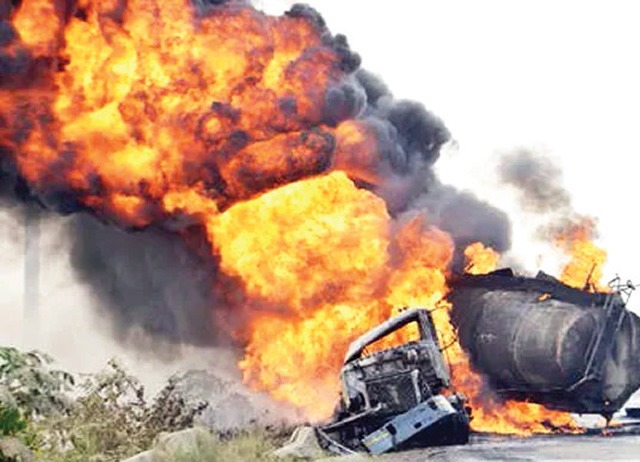“Road Safety or Economic Loss? The Debate Over Banning 60,000-Litre Petroleum Trucks”
 The Nigerian government and the National Association of Road Transport Owners (NARTO) are at odds over a proposed ban on petroleum trucks with a 60,000-litre capacity, aimed at preventing the deadly explosions that have plagued the nation’s roads.
The Nigerian government and the National Association of Road Transport Owners (NARTO) are at odds over a proposed ban on petroleum trucks with a 60,000-litre capacity, aimed at preventing the deadly explosions that have plagued the nation’s roads.
In a recent stakeholders’ meeting in Abuja, the Nigerian Midstream and Downstream Petroleum Regulatory Authority (NMDPRA) presented the proposal, citing the rising toll of lives lost in tanker accidents. According to the NMDPRA, these explosions have claimed 493 lives in just the past three years, prompting urgent calls for change.
The government is considering a drastic reduction in tanker capacity, proposing that trucks be limited to a maximum of 45,000 litres to curb fatalities and eliminate these catastrophic accidents. Farouk Ahmed, CEO of NMDPRA, announced this recommendation during the meeting, underlining the increasing death toll: seven fatalities in 2022, 24 in 2023, and 341 last year alone. The death toll has already reached 121 within the first two months of 2025.
“This year alone, we’ve seen five major tanker accidents, resulting in 121 deaths and 79 injuries. These incidents are preventable and must be stopped,” Ahmed declared, stressing the urgent need for safety measures and adherence to established protocols by petroleum operators.
However, Yusuf Othman, the President of NARTO, voiced strong opposition to the proposal, arguing that it would result in catastrophic financial losses for the transportation industry. Othman highlighted that many of the large-capacity trucks cost around N150 million each and are key investments for transporters. He warned that banning the 60,000-litre trucks would result in losses exceeding N300 billion—an amount heavily tied to loans from banks and other financial institutions.
“We’re talking about huge investments here. Each truck is worth N150 million, and we have about 2,000 of these vehicles. A ban on 60,000-litre trucks would not just hurt transporters but could destabilize the entire industry,” Othman stated.
As the debate continues, the Nigerian government must balance the need for public safety with the economic implications of regulating the transport sector. It remains to be seen how the clash between safety concerns and financial interests will be resolved.













